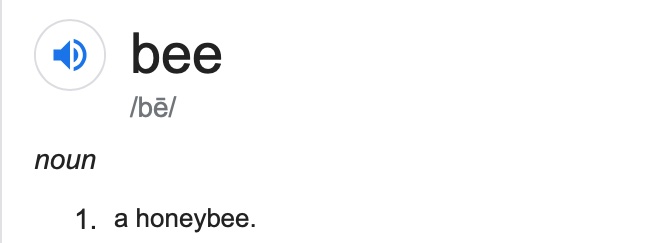A thread about Google and "the bee"  https://abs.twimg.com/emoji/v2/... draggable="false" alt="🐝" title="Honeybee" aria-label="Emoji: Honeybee"> inspired by today& #39;s doodle for #EarthDay2020
https://abs.twimg.com/emoji/v2/... draggable="false" alt="🐝" title="Honeybee" aria-label="Emoji: Honeybee"> inspired by today& #39;s doodle for #EarthDay2020  https://abs.twimg.com/hashflags... draggable="false" alt="">
https://abs.twimg.com/hashflags... draggable="false" alt="">
Over the past couple years I& #39;ve been exploring public perception of bees through Google Trends search data. Today& #39;s doodle is pretty relevant to this research...
Over the past couple years I& #39;ve been exploring public perception of bees through Google Trends search data. Today& #39;s doodle is pretty relevant to this research...
The doodle spews facts as you play a pollination game & spread dandelion seeds (not how pollination works, but it is kind of cute).
The "facts" are better described as commonly held, but mostly incorrect beliefs about bees. The focus is almost entirely on the European honey bee.
The "facts" are better described as commonly held, but mostly incorrect beliefs about bees. The focus is almost entirely on the European honey bee.
I& #39;m not surprised. I& #39;ve found that this is what Google does best. The search algorithms tend to reinforce commonly held, but incorrect beliefs about bees.
E.g., "bee" searches are treated as synonymous w/ "honey bee" searches. This reinforces the belief that there is only 1 bee.
E.g., "bee" searches are treated as synonymous w/ "honey bee" searches. This reinforces the belief that there is only 1 bee.
Google& #39;s reinforcement of incorrect beliefs is obvious when we consider that search isn& #39;t just an external input by the user, but also cultivated internally by the search engine.
Google guesses what you& #39;re searching for by relying on past searches and quick & dirty correlations
Google guesses what you& #39;re searching for by relying on past searches and quick & dirty correlations
Search reinforcement is especially prevalent in the suggested search feature.
A commonly held belief like "carpenter bees are pests" is amplified through Google algorithms. So you can& #39;t search info on "carpenter bees" w/o the search engine suggesting "how to kill carpenter bees"
A commonly held belief like "carpenter bees are pests" is amplified through Google algorithms. So you can& #39;t search info on "carpenter bees" w/o the search engine suggesting "how to kill carpenter bees"
I& #39;m still working out what all this means for bee conservation. But in general, I& #39;m seeing that the algorithm biases toward misinformation (like the doodle) and likely greater awareness of bees as pests.
I think that conservationists could potentially hi-jack the algorithm to shift the bias toward more positive actions for bees and greater awareness of bee diversity and conservation. However, this takes SEO know-how, $$$ and clever marketing of websites, blogs & research articles

 Read on Twitter
Read on Twitter


